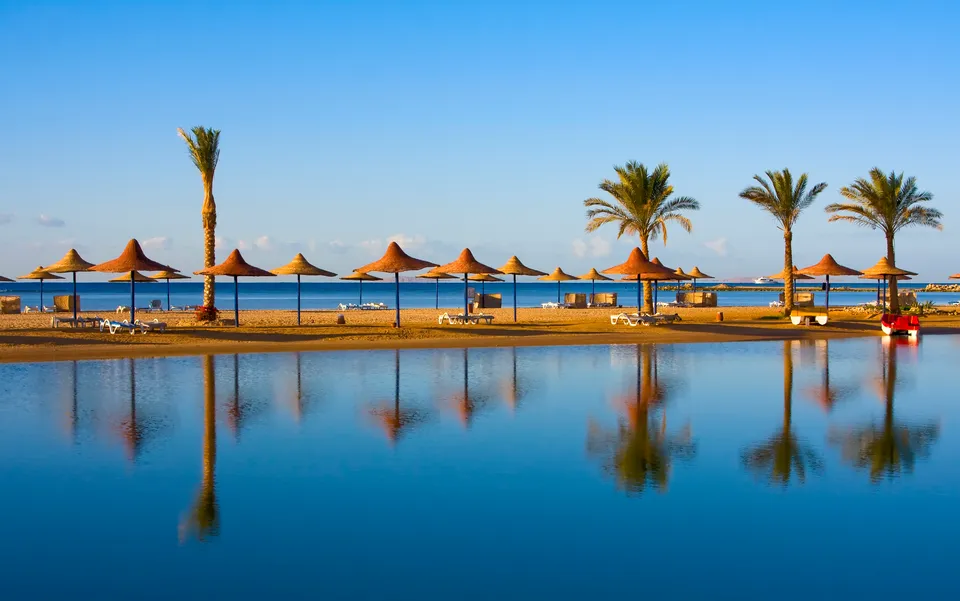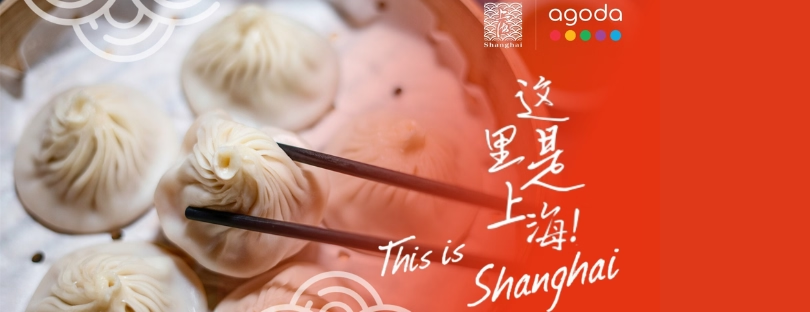
Egypt Traditions and Culture: What to Know Before You Go
As one of the world’s earliest civilizations, Egyptian culture reflects thousands of years of recorded history, and ancient Egyptians’ influence is still felt today, from transportation and medicine to mathematics and architecture. Egypt Traditions and Culture
Ancient Egypt’s lasting marks can be seen across Modern Egypt—in the temples, monuments, and pyramids of the ancient world, and in the museums found throughout this Arab republic. In the present day, Egyptians are primarily conservative in attire and etiquette yet remain hospitable toward others. Religion plays an important role in Egyptian society, and a sense of family and community are also prevalent.
As travelers, learning about other cultures can help you engage more respectfully, and that’s especially true here—it’s important to be aware of Egyptian customs and traditions to avoid causing offense. This guide covers all the essentials, including religious and social observances and cultural and traditional practices. Here’s everything you’ll need to know as a traveler visiting Egypt.
Egypt Languages and Greetings Egypt Traditions and Culture
The official spoken language in Egypt is Egyptian Arabic. Most Egyptians speak one of several vernacular dialects of this language: Nobiin is spoken by the Nubian people, for example, and Bedawi is primarily used by the Bedouin people. Egyptian Sign Language is also recognized, and the Coptic language, which descends from the ancient Egyptian language, is practiced liturgically in Coptic Orthodox Church in Egypt.
English is commonly spoken by staff at hotels, restaurants, and tourist attractions. French is taught as a secondary language in schools and may also be spoken.
To get started making introductions and conversations in Arabic, here are some common beginner phrases:
- Hello – Marhaba or ahlan (to a male, ahlan beek; to a female, ahlan beeke)
- Please – Law samaḥt
- Thank you – Shukran
- Yes – Aywa
- No – La
- How are you? – to a male, Izzayak; to a female, Izzayik
- My name is… – Aismi hu…
- How much is this? – Kam thaman hadha
- Where is the bathroom? – Feen el ḥammām
- Let’s go – Yalla
Greetings Egypt Traditions and Culture
In Egypt, the most common greeting is As-salamu alaykum, which translates to “Peace be upon you.” The response to this greeting is Wa alaykumu s-salam, meaning “And upon you be peace.”
However, this greeting can be slightly formal and might not be used among close friends and family. In more informal situations, people may use ahlan (hello) or marhaba (hello/welcome).
In more conservative or traditional communities, Egyptian men do not generally have physical contact (such as shaking hands or hugging) with women who are not their close relatives or wives. In less traditional communities, on the other hand, men often shake hands or, if they are close friends or relatives, hug or kiss on the cheek when they greet each other. Egyptian women also commonly greet each other with a kiss on each cheek, especially among close friends or relatives.
In a professional setting or among more westernized individuals, it may be more common for men and women to shake hands, but it’s usually best to follow the woman’s lead in such situations. If in doubt, a polite verbal greeting without physical contact is always a safe choice. These norms can change depending on the social, cultural, and personal context, so they should be seen as general guidelines rather than strict rules.
Addressing Others Egypt Traditions and Culture
Depending upon the nature of the relationship, a formal address involves the use of titles—i.e., Mr., Mrs., or Dr.—along with a person’s first name or surname. Especially with older Egyptian men, it’s important to use formalities in conversations.
In much of the Arab world, it is common to use an individual’s profession as an honorific. This especially applies to those in respected professions, such as medical. Terms include Sayyid, or Mr., and Sayyida, the equivalent to Mrs.
Indigenous Cultures in Egypt
Depending upon the region, Egypt’s population reflects the physical characteristics of those who arrived or invaded the country over the course of its history. Inhabitants within the Nile River Valley and the Nile Delta dominantly have physical traits from the Indigenous African population with those of Arab ancestry. In more urban areas, especially within the northern delta towns, physical characteristics can be traced back to invading and immigrant arrivals, including Romans, Greeks, Turks, and Crusaders.
Inhabitants of different parts of Egypt also reflect different histories and cultures. Nubians are primarily based in the south of Egypt and northern Sudan. Their origins link to one of Egypt’s early civilizations inhabiting the central Nile valley. Nubians carry a distinct culture and language along with their own traditions relating to music, art and architecture.
Bedouins are nomadic or semi-nomadic and historically have been situated within desert regions of Western Asia and North Africa. In Egypt, they are based primarily within the Sinai Peninsula and the Eastern Desert and are known for traditions such as herding.
Berbers, also called Amazigh, are based within the Siwa Oasis and the Western part of Egypt. They also have their own language (Siwi) and customs.
Indigenous Sites
Egypt has sites that are historically religious and culturally significant. Some of them are:
- Pyramids of Giza: These three pyramids on the Giza Plateau were built over the span of the span of three generations by the rulers Khufu, Khafre, and Menkaure as their final resting places.
- Nubian Monuments from Abu Simbel to Philae: The construction of the Aswan High Dam put these monuments at risk of submersion in the 1960s, but a UNESCO-launched international campaign had them moved to safety.
- Al-Azhar Mosque: Located in Cairo, this architecturally significant mosque has been expanded and redesigned overtime since its establishment in 972. Along with serving as a house of worship, the Al-Azhar Mosque is a scholarly place with an attached university that’s one of the oldest in the world.
Religion in Egypt
Islam—primarily Sunni—is the dominant religion in Egypt’s population and is also the country’s state religion. The Egyptian Christian community has a large Coptic Orthodox denomination, and other beliefs include a minority of practicing Judaism.
Travelers of faith can visit specific religious sites in Egypt. Among them, the El-Hussein Mosque in Cairo is believed to house the oldest complete manuscript of the Qur’an and the head of Husayn ibn Ali, the grandson of the Prophet Muhammad. It’s a significant site of pilgrimage, particularly for Shia Muslims.
In 2017, the Vatican approved of a pilgrimage trail in Egypt that is said to follow the route taken by the Holy Family to flee King Herod from Sinai to Asyut.
Saint Virgin Mary’s Coptic Orthodox Church is also known as the “Hanging Church” because it was built upon the southern gatehouse of the Roman-built Babylon Fortress. It appears to be hanging in midair, and its courtyard is adorned with impressive Biblical mosaics.
Other important monasteries in Egypt include the Monastery of Saint Pishoy in Wadi El Natrun and the Monastery of Saint Anthony in the Eastern Desert, the oldest active Christian monastery in the world.
Within the Islamic calendar, Ramadan is observed by Muslims worldwide as a month of fasting, prayer, reflection, and community, in which they refrain from eating or drinking, even water, from sunrise to sunset. While some tourist restaurants in Egypt may be open during Ramadan, some might shut down or provide less services. Please be considerate to those fasting.
In Islam, the consumption of alcohol is seen as a vice. Drinking alcohol outside of a licensed hotel or restaurant in Egypt, even more on the street, can lead to an arrest.
Muslims observe the Call to Prayer, which takes place five times a day. When visiting mosques, it is forbidden to talk or walk in front of a person who is in prayer.
In the Egyptian Coptic Orthodox faith, major religious holidays include Christmas, the Epiphany, Easter and the Annunciation.
Egypt Festivals and Holidays Egypt Traditions and Culture
Visiting Egypt during important festivals is one of the best ways to meet locals, learn about cultural traditions and customs, and have a good time. Here are some of the best-known festivals and holidays that take place in Egypt.
The Sun Festival at Abu Simbel
This biannual event occurs at the Abu Simbel Temples in southern Egypt and showcases the incredible precision and architectural prowess of ancient Egyptian engineers.
The temples were constructed under the reign of Pharaoh Ramses II in the 13th century BCE. They were made in such a way that twice a year, on or around February 22 and October 22, the sun’s rays penetrate the temple and illuminate the inner sanctuary, shining directly into the central chamber onto three of the four statues seated at the end of the corridor.
The Sun Festival at Abu Simbel has become a popular event, attracting many tourists to witness this ancient wonder at sunrise.
Sham Ennessim
Taking place on Coptic Orthodox Easter Monday, Sham Ennessim (also spelled Sham el-Nessim) commemorates the arrival of spring and ushers in the agricultural season. Rooted in Pharaonic times, the spring commemoration is recognized as a national holiday.
To celebrate, Egyptians gather in gardens and parks for picnics, and families go to places geared to children, like zoos. It’s customary that on the night before the holiday, families boil eggs and decorate them with various designs, reflecting signs of renewal.
Bargaining and Haggling in Egypt
Haggling can be done in Egypt but it should be approached as a friendly exchange. Bazaars and public markets are acceptable places for bargaining, So are taxi cab rides, independent stores selling crafts and wares and tours and excursions. Avoid bargaining at places with fixed prices such as restaurants and cafes, supermarkets and chain stores, government shops, and museums and historical sites.
Protocols to keep in mind to be considered respectful and polite in Egypt culture:
- Start off the exchange with a smile and a friendly attitude.
- Learn and practice some basic words in the Arabic language to use in the transaction.
- The shopkeeper will be very welcoming and complimentary and may offer you tea. Don’t feel obligated to drink if you prefer not to.
- Don’t bargain unless you’re genuinely interested in purchasing the item for sale—it’s insulting to negotiate in bad faith.
- Consider visiting souks and markets later in the day, when vendors are hoping to make a few last sales before shutting up shop.
- It’s ok to walk away if the seller won’t meet your price. In some cases, the seller might call you back with a better price.
- When buying gold, settle the price per gram rather than per item.
- It’s okay to be generous with your money—exchange rates for the Egyptian pound will likely be in your favor, and paying a fair price benefits the merchant who makes a living.
Egypt Etiquette for Travelers
From how to behave at temples to the proper way to eat, these etiquette rules and guidelines will help you better respect Egyptian tradition and culture.
Temple and Religious Sites Etiquette in Egypt
When visiting religious sites around the country, be respectful of the rules and follow these basic etiquette guidelines.
- Look for posted signage highlighting any rules and regulations.
- Dressing modestly and respectfully is highly valued. Especially for a woman, clothing should cover the shoulders, knees, and chest. Wearing the opposite is considered offensive. Some temples may also require women to wear head coverings.
- Remove your shoes if asked to do so. Also, wear comfortable and steady footwear, as these sites may have uneven or rough flooring.
- Respect rules involving photography. Always ask permission before taking photos, and never try to sneak pictures where it isn’t allowed.
- Speak softly and avoid making loud noises to be respectful of others using the space.
- Do not touch or handle objects unless it is expressly allowed.
- Public displays of affection, such as hugging, kissing, or holding hands, are generally not appropriate within religious sites.
- Make a small donation in thanks.
Dining Etiquette in Egypt
Over time, Egypt’s location at the crossroads of Europe, Africa, Asia, and the Middle East has seasoned its gastronomy. Egyptian cuisine features a number of flavorful signature dishes, also influenced by the country’s regional agriculture, culinary preparations, and local and neighboring cultures.
For example, the Delta Nile River is a garden for tomatoes, onions, and green-leafed vegetables, which are part of the region’s cuisine, as are rice and pasta. The southern region of Upper Egypt is also shaped by its rural and agricultural heritage, with legumes, millet, and corn, while the Sinai Peninsula is linked to simple yet hearty dishes influenced by the region’s Bedouin community.
The coastal city of Alexandria makes seafood a major component in its cuisine, with grilled fish—known as samak mashwi—as a must try. The Red Sea coastal region also includes fish and an infusion of Egyptian and Saudi cuisines, due to its proximity to Saudi Arabia and other neighboring Gulf countries. Cairo not only offers many regional cuisines but also has a prominent street food scene.
Consider ordering these Egyptian foods from restaurant menus and/or street carts:
- Koshari: Also spelled kushari, this traditional dish and street food features a hearty mixture of ingredients, including pasta, rice, lentils, and chickpeas that’s also topped with a tomato sauce.
- Shawarma: Traditionally lamb but nowadays chicken, beef, or veal, shawarma consists of thin cuts of meat that have been grilled, sliced, and served in bread or a roll.
- Kofta: This dish involves ground beef or lamb mixed with spices, garlic, and onions and rolled into ball or log shapes, then skewered and grilled. Versions can be prepared with skewers and served with pita bread and vegetables.
- Ful medames: Eaten for breakfast, this stew is made from cooked fava beans and served with olive oil and cumin. It can also be optionally paired with other ingredients, including chopped parsley, garlic, onion, lemon juice, chili pepper, and spices.
- Ta’ameya: This Egyptian falafel is prepared with dried fava beans and often served in pita bread with tomato, onions, and tahini sauce.
- Fattah: The Egyptian version of this dish involves toasted pita bread, rice, tomato paste, and meat, such as lamb or beef.
- Molokhia: This green soup is prepared by cooking minced jute leaves in broth and is often served with rice and chicken.
Here is some dining culture etiquette to know before diving into Egypt cuisine:
- Avoid using the left hand with communal food, as it is associated with hygiene purposes.
- It’s considered to be a compliment to take second helpings of a meal. Leave a small amount of food on your plate once you’ve finished eating.
- Wash your hands before the meal and sometimes between courses.
- With tipping, 10% to 15% of your bill total is customary at cafes and restaurants. Loose change is encouraged for food purchases from street vendors and markets.
- Muslims do not eat pork for religious reasons, so don’t expect to find it on menus and be respectful regarding its omission.
How to Dress in Egypt
Dress conservatively, with loose and long opaque clothing. For footwear, sturdy sneakers and/or sandals specifically designed for walking are important. Pathways in historical sites and walkways in major cities are often rocky and uneven.
If you are planning a travel to Egypt, here are some eSIM prices:
Communications in Egypt
Communication in Egypt is facilitated by several major operators including Vodafone, Orange, Etisalat, and WE. These providers offer a range of services, from voice calls and SMS to high-speed internet access. However, roaming charges can be quite high for international travelers who use their home country’s mobile services.
To avoid these high costs, many travelers opt for local SIM cards which provide more affordable rates for calls, SMS, and data. These SIM cards can be purchased upon arrival in Egypt, but it’s more convenient to acquire them before departure to ensure seamless connectivity upon landing.
One of the most efficient solutions is purchasing a SIM card from Alertify. Alertify provides travel SIM cards (and eSIM) that are configured to work in Egypt, offering a variety of data plans to suit different needs. This way, you can stay connected without worrying about exorbitant roaming charges. Moreover, Alertify’s store solutions offer an easy and hassle-free process, delivering the SIM card to your doorstep before your trip. This not only saves you time but also gives you the peace of mind of knowing that you will have immediate connectivity upon your arrival in Egypt.
Other Essential Tips
Here are some other important things to keep in mind during your Egypt travels.
Personal space: For Egyptians, except for gender norms, the concept of personal space is a bit more relaxed in standing or sitting in close proximity to others.
Elder respect: Egyptians hold seniors in high regard and are very respectful to them. Family values and relations, including extended family, are very important as well.
Punctuality: The Egyptian people are quite laid-back, so sometimes people will be late or delayed because of traffic, so be patient and flexible during your visit.
Gift-giving: Avoid giving flowers as a gift; they’re more associated with weddings and mourning. If invited to an Egyptian’s home, a nice small gift could be good-quality chocolates.
















